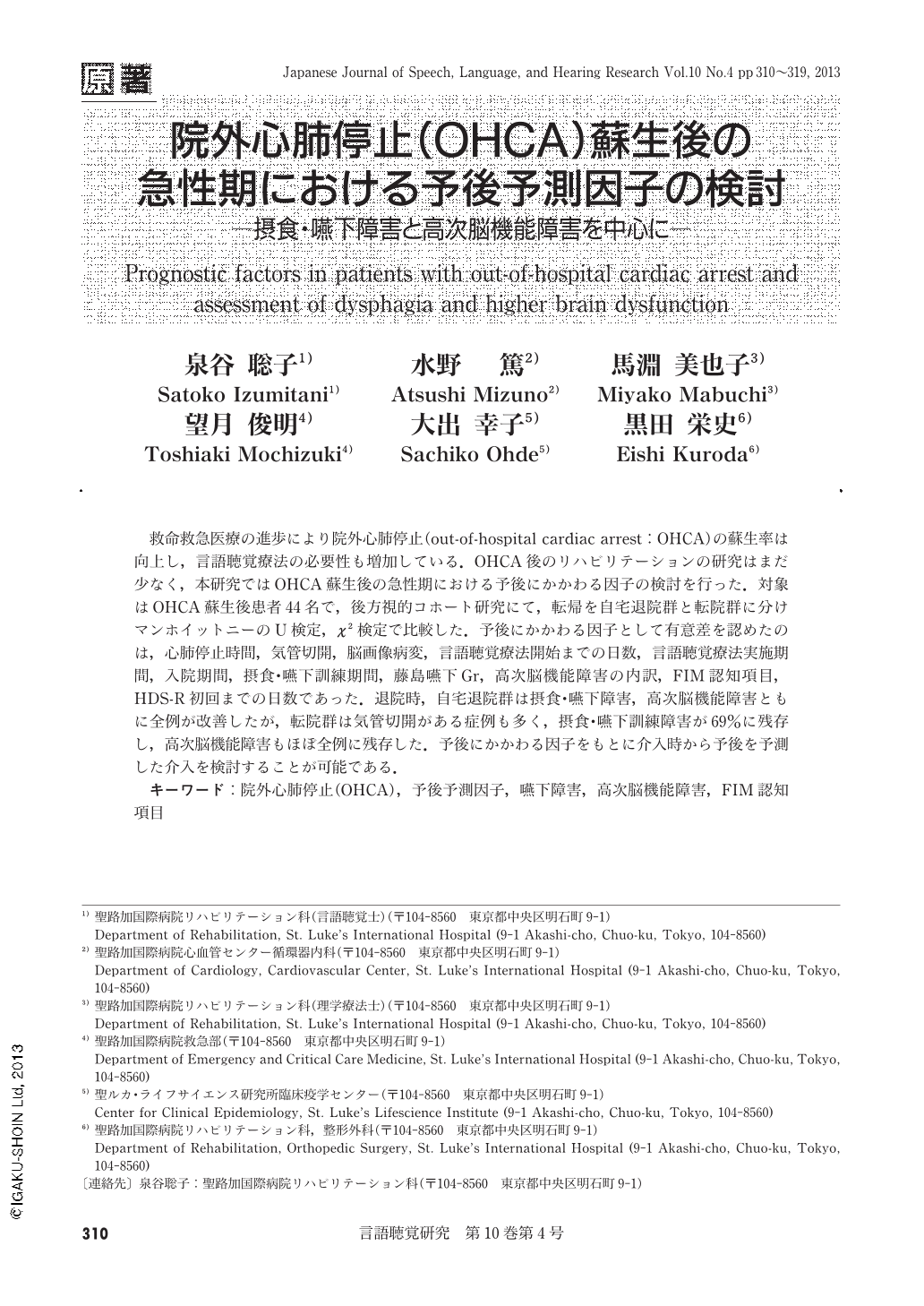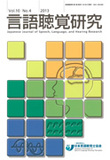Japanese
English
- 有料閲覧
- Abstract 文献概要
- 1ページ目 Look Inside
- 参考文献 Reference
救命救急医療の進歩により院外心肺停止(out-of-hospital cardiac arrest:OHCA)の蘇生率は向上し,言語聴覚療法の必要性も増加している.OHCA後のリハビリテーションの研究はまだ少なく,本研究ではOHCA蘇生後の急性期における予後にかかわる因子の検討を行った.対象はOHCA蘇生後患者44名で,後方視的コホート研究にて,転帰を自宅退院群と転院群に分けマンホイットニーのU検定,χ2検定で比較した.予後にかかわる因子として有意差を認めたのは,心肺停止時間,気管切開,脳画像病変,言語聴覚療法開始までの日数,言語聴覚療法実施期間,入院期間,摂食・嚥下訓練期間,藤島嚥下Gr,高次脳機能障害の内訳,FIM認知項目,HDS-R初回までの日数であった.退院時,自宅退院群は摂食・嚥下障害,高次脳機能障害ともに全例が改善したが,転院群は気管切開がある症例も多く,摂食・嚥下訓練障害が69%に残存し,高次脳機能障害もほぼ全例に残存した.予後にかかわる因子をもとに介入時から予後を予測した介入を検討することが可能である.
The resuscitation rate after out-of-hospital cardiopulmonary arrest (OHCA) has improved owing to advances in emergency medical care, and as a result more patients are now receiving speech-language-hearing therapy. However, prognostic factors for patients after resuscitation are still unknown. We retrospectively reviewed the outcomes of 44 OHCA patients from January 2009 to March 2011 in our hospital. They were divided into two groups:1) patients discharged to their homes, and 2) patients transferred to another rehabilitation hospital. We compared the two groups in terms of the progress of dysphagia and higher brain dysfunction and analyzed the prognostic factors using the Mann-Whitney U test and Chi-square test.
Significant differences were noted in the time until the return of spontaneous circulation, presence of tracheotomy, presence of brain lesion, days until starting speech-language-hearing therapy, therapy period, length of hospitalization, Fujishima's swallowing function grade, FIM cognitive score, and, days until the first evaluation of HDS-R. All the patients that were discharged to their homes showed improvement in dysphagia and higher brain dysfunction. Conversely, the patients that were transferred to another rehabilitation hospital did not fully recover from dysphagia or higher brain dysfunction. Based on the prognostic factors obtained in this study, we can predict intervention targets of speech-language-hearing therapy with a new perspective.

Copyright © 2013, Japanese Association of Speech-Language-Hearing Therapists. All rights reserved.


